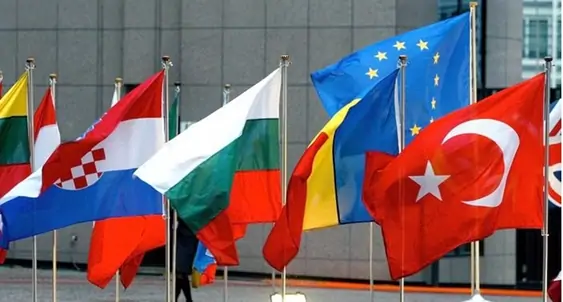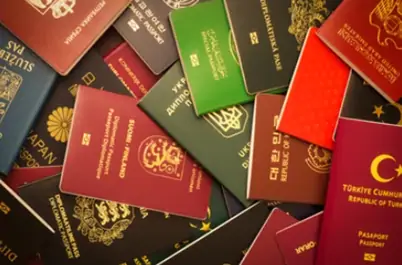Judicial Immunity of Foreign States Under Article 49 of The International Private and Procedure Law (Act No. 5718) Of Turkiye

Article 49 of the International Private and Procedure Law (Act No. 5718) titled “Cases Where a Foreign Country cannot Claim Exemption from Jurisdiction” regulated as follows:
“(1) A foreign country shall not be granted exemption from jurisdiction in legal disputes arising from private law relations.
(2) In such disputes, notifications may be served to diplomatic representatives of the foreign countries”
The justification for Article 49 of the International Private and Procedure Law (Act No. 5718) corresponds exactly to Article 33 of the Act on International Private and Procedure Law No. 2675 (“Old Law”).
According to Article 49 of the International Private and Procedure Law (Act No. 5718), judicial immunity comes into play in matters related to the sovereignty rights of the state, but there is no judicial immunity in disputes arising from private law relationships. In this way the Turkish law has adopted the principle of limited immunity, which is widely embraced by numerous states.
Judicial Immunity

The term judicial immunity means that Turkish courts do not have the authority to adjudicate against individuals and/or institutions who are the respondent in the case, and no lawsuits can be filed against them in Türkiye (Turkey). According to the Article 114/1-a of the Turkish Code of Civil Procedure No. 6100 one of the conditions of filing a lawsuit in Türkiye (Turkey) is that Turkish courts must have the right for jurisdiction. However, if sovereignty rights of the state is the case, then Turkish court will not have the right for jurisdiction therefore the required condition will not be met.
Article 49 only regulates the judicial immunity of foreign states. In addition, this judicial immunity includes diplomatic or consular representatives, international organizations, and individuals with diplomatic immunity. The judicial immunity of diplomatic representatives and consulates is regulated in various Vienna Conventions to which Türkiye (Turkey) is a party.
Decisions of Court of Appeals
- Decisions of the Court of Appeals Stating the Absence of Judicial Immunity
- The Court of Appeals claims that due to relationship of lease is a private law relationship, state cannot benefit from judicial immunity.
Court of Appeals Decision – 6th Chamber, Case No. 2009/10643, Decision No. 2009/10361, Date: December 1, 2009.
“(…) The respondent’s attorney argues that the lawsuit was filed against the U.S. Embassy on behalf of the U.S. Government, but embassies do not have legal personality. According to the Vienna Convention’s Article 22, foreign missions have immunity and according to Article 31 of the same convention, a state accepting a diplomatic agent is also immune from civil and administrative jurisdiction. The attorney contends that the lawsuit should have been filed against the United States and should have followed the provisions of the Hague Convention. The attorney also points out that the plaintiff has done the opposite by naming the U.S. Embassy as the adversary and argues that the Embassy does not have the authority to represent the U.S. Government. Therefore, the attorney advocates for the dismissal of the lawsuit on its merits.
(…) In the special conditions section of Article 6 of the contract, it is stated that the person signing this lease agreement is duly authorized procurement officer of the U.S. Government. (…) Both the content of the contract and the purpose of its use establish a private law relationship between the parties for the purpose of leasing. According to Article 33 of Law No. 2675 on International Private Law and Procedure, as well as Article 49 of Law No. 5718 on International Private Law and Procedure, judicial immunity is not recognized for foreign states in legal disputes arising from private law relationships. In such disputes, notifications can be made to the diplomatic missions of the foreign state. (…) In light of all these regulations, the dispute in the case pertains to a claim for debt and damages arising from a lease agreement subject to private law provisions between the foreign state, which does not enjoy judicial immunity due to the nature of the legal relationship, and the lessor. In this case, there is no obstacle to the lawsuit being heard both from a diplomatic perspective and in terms of the adversarial relationship. (…)”
Court of Appeals Decision- 6th Chamber, Case No. 2006/239, Decision No. 2009/242, Date: December 1, 2009.
(…) The plaintiff’ attorney claims that the defendant, as the tenant in the leased area under the lease agreement dated 01.10.2001, unjustly terminated the lease by citing a water leakage in the leased area and vacated the premises on 18.05.2006. The plaintiff contends that the termination is unjust and, due to the lease term not yet expiring, the defendant is responsible for the one-year rent due on 01.04.2006 according to the contract. (…) The defendant’s attorney argues that the case is filed against the US Embassy on behalf of the US government, stating that embassies do not have legal personality. (…)
Considering all these regulations, the dispute in the case pertains to a claim for debt and damages arising from a lease agreement subject to private law provisions between the foreign state without judicial immunity and the lessor. (…) In this case, instead of rendering a written judgment, it is deemed incorrect not to examine the substance of the matter and decide accordingly. Therefore, the decision should be annulled. (…)”
- The Court of Appeals maintains that in lawsuits related to the determination of insured services judicial immunity cannot be discussed.
Court of Appeals Decision – 10th Chamber, Case No. 2010/15750, Decision No. 2012/5611, Date: March 22, 2012.
“(…) The lawsuit pertains to the determination of the plaintiff’s insured employment between the dates of 01.01.1992 and 31.08.2008, which were registered with workplace number 47976.06 at the defendant Institution (…)
The court has decided to dismiss the case on the grounds that the place of service was a foreign country’s embassy, and that Law No. 506 does not provide a means of enforcement.
(…)
Furthermore, Law No. 5718 on International Private Law and Procedure, Article 49, regulates the situations in which foreign states cannot benefit from judicial immunity; (…) regulated as such and there is no judicial immunity in our case in dispute.
Therefore, the necessary procedure should be the examination of the essence of the case in lawsuits related to the determination of such insured services. Due to their connection to public order, the principles of mandatory care and necessity dictate that the trial should be conducted with special sensitivity and diligence. However, the written establishment of the decision is in violation of procedural and legal principles and is grounds for annulment.
CONCLUSION: The appealed judgment is REVERSED for the reasons explained above (…)”
- Decisions of the Court of Appeals Stating the Presence of Judicial Immunity
- In the Court of Appeals decision below it is argued that whether visa application is related to the sovereignty rights of the state or there is a private law relationship. The Court of Appeals decided that visa application is sovereignty right of the state therefore the state will benefit from judicial immunity.
Court of Appeals Decision – 4th Chamber, Case No. 2013/10023, Decision No. 2013/13933, Date: September 10, 2013.
“(…)The dispute revolves around whether the actions and procedures related to the visa application at the Consulate General of the Federal Republic of Germany in Izmir, according to the “Agreement on the Employment of Turkish Company Workers under the Exemption Contract,” signed between the State of Germany and the State of Türkiye, fall within the scope of the exercise of sovereign rights or whether they constitute a legal dispute arising from private law relationships under Article 49 of the International Private Law and Procedure Law and whether the actions and procedures taken by the Consulate are protected by sovereign immunity or whether they can be considered as part of a legal dispute arising from private law relationships. This determination is crucial in deciding whether the State of Germany can be subject to legal proceedings in Turkish courts.
(…)
Visa processing is considered an act carried out within the scope of a state’s sovereign discretion. Both international and domestic law leave no room for doubt in this regard. In this context, actions or procedures such as deciding to reject a visa application or not providing a response, whether positive or negative, should be evaluated as within the realm of sovereign discretion.
(…)
The relationship between the plaintiff and the defendant, the State of Germany, is not considered a private law relationship under Article 49 of Law No. 5718 on International Private Law and Procedure. Instead, it falls within the scope of judicial immunity, and it is related to visa processing carried out in the context of sovereign discretion.
(…)
Based on the reasons explained above, the local court decision dated 30/03/2012 that has been appealed is hereby REVERSED (…)”
- There are differences of opinion whether judicial immunity can be applied to the lawsuits arising from employment contracts.
Court of Appeals Decision – 9th Chamber, Case No. 2022/159, Decision No. 2022/1756, Date: February 14, 2022.
“Court of Appeals Decision
Based on the mutual allegations and defenses of the parties, the documents they rely on, the legal principles applicable to the dispute, the characterization of the legal relationship, the terms of the contract between the parties, the conditions for filing the case, the rules of procedure and evidence, and the reasons stated in the appealed decision, the objections to the appeal that are found to be without merit are rejected. The decision of the Regional Court of Justice is upheld in accordance with Article 370/1 of Law No. 6100 on Civil Procedure (…)Top of Form
DISSENTING OPINION
“(…) In the case at hand, the respondent, the Islamic Development Bank, is an international organization established on 07/12/1973 by seven member countries of the Organization of Islamic Cooperation. In the specific case, on 23/03/2015, the respondent bank offered the plaintiff a position as Chief Economist at the Islamic Development Bank, and the plaintiff accepted this job offer for a specified remuneration, signing a fixed-term employment contract with the respondent bank. The plaintiff began working at the respondent’s main office in the city of Jeddah, Kingdom of Saudi Arabia, on 12/05/2015. However, the employment contract was terminated before the completion of the three-year term.
(…)
Indeed, after the enactment of the mentioned Law, the Court of Appeals, in a decision from 1989, did not recognize the immunity of the United States in a dispute arising from a private law transaction such as a lease agreement. Furthermore, in a decision in 2006, the Court of Appeals evaluated the treatment the plaintiff received during the revocation of their visa and the prevention of their entry into the United States by state authorities as an “unlawful (act) tort,” rejecting the objection of the United States regarding judicial immunity. In another decision in 2009, the Court of Appeals ruled in favor of the lessor who had filed a lawsuit against the United States Government for a claim arising from unpaid rent and damages for misuse in a lease agreement governed by Private Law provisions. The court concluded that the United States does not have judicial immunity in disputes arising from a lease agreement subject to Private Law provisions and that the merits of the case should be considered.
Both precedent decisions and doctrinal opinions support the argument that the respondent … does not have judicial immunity in terms of private law.
(…)
Respondent, in the specific case, does not have judicial immunity, and the requirement for Turkish courts to have jurisdiction was not met. Therefore, the decision to dismiss the case due to the absence of a procedural requirement for the lawsuit was not appropriate, as the Bank can indeed be tried in Turkish courts (…)”
Foreign State’s Immunity from Execution Under Turkish Law

The immunity from enforcement of a foreign state is described as preventing the execution of decisions and the seizure of property by another state. According to Article 32/2 of the Enforcement and Bankruptcy Law No. 2004 a foreign state will enjoy immunity for assets used for public purposes. Moreover Article 42 of the mentioned law regulates that enforcement proceedings without a court judgement cannot be pursued against foreign states.
In essence assets reserved for public purposes used in areas such as defense, security, and diplomacy in order to carry out activities specific to state’s sovereignty, assets which belong to foreign state reserved for commercial purpose.
Court of Appeals Decision- 12th Chamber, Case No.2004/6469, Decision No. 2004/13007, Date: May 24, 2004.
“The Execution Court has decided to accept the complaint regarding the enforcement proceeding with a court judgement against state of Turkmenistan about the removal of seizure of assets in the accounts of the Embassy of Turkmenistan at İş Bankası and accounts of same state’s Consulate General of İstanbul at Denizbank and the removal of seizure, conservation, and arrest of airplanes on same state’s airplanes.
Article 82/1 of the Enforcement and Bankruptcy Law, which prohibits the seizure of state assets, is only applicable for the Turkish assets. This regulation does not apply to foreign state assets. In Turkish laws there aren’t any regulations for enforcement immunity about the foreign state assets. Judicial immunity and enforcement immunity are different topics from each other. Emphasizing the difference between judicial immunity and enforcement immunity, the nature and usage of the property subject to enforcement are crucial in determining enforcement immunity.
Enforcement measures can be applied to property and real estate belonging to a foreign state located in the country that is not used for diplomatic and consular purposes. For instance, assets such as railway wagons, stored tobacco, funds deposited by a foreign state in a local bank for a commercial venture, funds deposited as collateral in a bank per a contract with an individual, or aircraft used for commercial purposes in the commercial field can be subject to enforcement. Considering Articles 22, 23, and 24 of the Vienna Convention on Diplomatic Relations, it is established that compulsory execution cannot be applied against a current general bank account held by an embassy or consulate of a foreign state solely for covering embassy or consulate expenses.
The court should have determined whether the funds in the contested bank account possess this characteristic by conducting a thorough investigation at the relevant bank branch. The decision to lift the attachment on these funds based on an incomplete examination is incorrect. (…)”
Conclusion
According to Article 49 of the International Private and Procedure Law (Act No. 5718) judicial immunity can be applied to matters falling within the scope of states’ sovereignty, while it does not apply to cases arising from private law relationships. On the other hand, even though there is no specific regulation for enforcement immunity in Turkish Law, the nature and usage of the property subject to enforcement plays a huge role while determining the enforcement immunity. In this article, we illustrate the relevant situations with decisions from the Court of Appeals in a detailed manner. We hope you enjoy reading it and find it helpful in gaining a deeper understanding of the regulation.

You can always seek our experienced, successful, and solution-oriented teams’ legal advice if you have any doubts in your mind about the mentioned topics. We will be more than happy to help and guide you in this matter.

